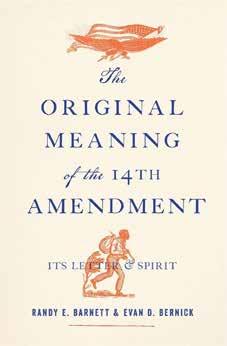Supreme Court Previews
The previews are contributed by the Legal Information Institute, a nonprofit activity of Cornell Law School. The previews include an in-depth look at several cases plus executive summaries of other cases before the Supreme Court. The executive summaries include a link to the full text of the preview.
Biden v. Missouri (No. 21A240) Oral argument: Jan. 7, 2022
Question as Framed for the Court by the Parties Whether the Supreme Court should issue a stay of the injunction issued by the United States District Court for the Eastern District of Missouri blocking a federal rule that requires all health care workers at facilities that participate in Medicare and Medicaid programs to be fully vaccinated against COVID-19 unless they are eligible for a medical or religious exemption.
Facts On Nov. 5, 2021, the Centers for Medicare and Medicaid Services’ (CMS), an agency within the Department of Health and Human Services (HHS), promulgated 86 Fed. Reg. 61,555, an Interim Final Rule with Comment Period (IFC) titled “Medicare and Medicaid Programs; Omnibus COVID-19 Health Care Staff Vaccination.” The mandate requires almost all staff who work or volunteer at Medicare- and Medicaid-certified healthcare facilities to be fully vaccinated against COVID-19. On Nov. 10, 2021, the States of Alaska, Arkansas, Iowa, Kansas, Missouri, Nebraska, New Hampshire, North Dakota, South Dakota, and Wyoming (collectively Missouri) challenged the mandate in the United States District Court for the Eastern District of Missouri. Missouri requested that the district court issue a preliminary injunction that would temporarily block CMS from enforcing the vaccine mandate. Before considering Missouri’s request for an injunction, the district court first noted that it had jurisdiction over the claims, re-
jecting the Biden administration’s argument that the Medicare Act, 42 U.S.C. § 1395ii, bars the court from hearing the matter. Next, in deciding whether to grant the preliminary injunction, the district court applied Dataphase Sys., Inc. v. C L Sys., Inc.’s four-factor balancing test. The test weighs the moving party’s likelihood of success on the merits, the threat of irreparable harm to the moving party absent an injunction, the overall balance of equities and hardships, and whether the public interest supports an injunction. The district court first assessed the States’ likelihood of success on the merits of their argument that CMS exceeded its authority in enacting the mandate. The court noted that because the mandate will have a wide-ranging impact and raises significant federalism concerns, an express grant of authority from Congress is required. Congress did not provide such authority and the court held that it would not infer Congressional intent. Moreover, the court indicated that Missouri would likely succeed on the merits because CMS did not abide by notice and comment requirements, CMS did not have “good cause” to bypass the requirements, and the mandate is arbitrary and capricious. Next, the district court found that Missouri would suffer irreparable harm absent an injunction. The court indicated that enforcement of the mandate would hinder Missouri’s ability to enforce their own laws. The court also pointed to potential harm that those receiving care in affected facilities would suffer because of the loss of unvaccinated staff. Lastly, the court merged consideration of the balance of equities factor with the public interest factor, finding that although the public has an interest in reducing the transmission of COVID-19, maintaining
the status quo pending final resolution of the case is in the public interest. Upon weighing the four factors, the district court granted the preliminary injunction. The Biden administration appealed the district court’s decision to the United States Court of Appeals for the Eighth Circuit. Pending consideration and disposition of the appeal in the Eighth Circuit, the Biden administration requested that the United States Supreme Court issue a stay of the injunction, allowing CMS to continue to enforce the mandate. On Dec. 22, 2021, the Supreme Court decided to hear oral argument on the question of whether to issue the stay. This case is consolidated with Becerra v. Louisiana, in which the United States District Court for the Western District of Louisiana similarly enjoined enforcement of the mandate.
Legal Analysis STATUTORY AUTHORIZATION THROUGH MEDICAID The Biden administration contends that a stay of the injunction is proper because the administration is statutorily authorized to issue the mandate. Specifically, the Biden administration argues that HHS possesses the statutory authority to require facilities that participate in the Medicare or Medicaid programs to comply with restrictions that protect patient health and safety. The Biden administration asserts that the text of the Medicare Act, 42 U.S.C. § 1302(a), unambiguously vests authority in the secretary of HHS to make rules that “may be necessary and efficient” to the administration of the Medicare and Medicaid programs. The Biden administration points to several provisions of the Medicare Act that recognize the HHS secretary’s broad power to set standards that ensure patient health and safety. The Biden administration contends that the vaccine mandate is analogous to these provisions and similarly necessary to protecting patient health and safety. The Biden administration also posits that science and common sense support the conclusion that requiring healthcare staff to be vaccinated protects patients by reducing the likelihood of patient COVID-19 infection and provid-
March/April 2022 • THE FEDERAL LAWYER • 71










